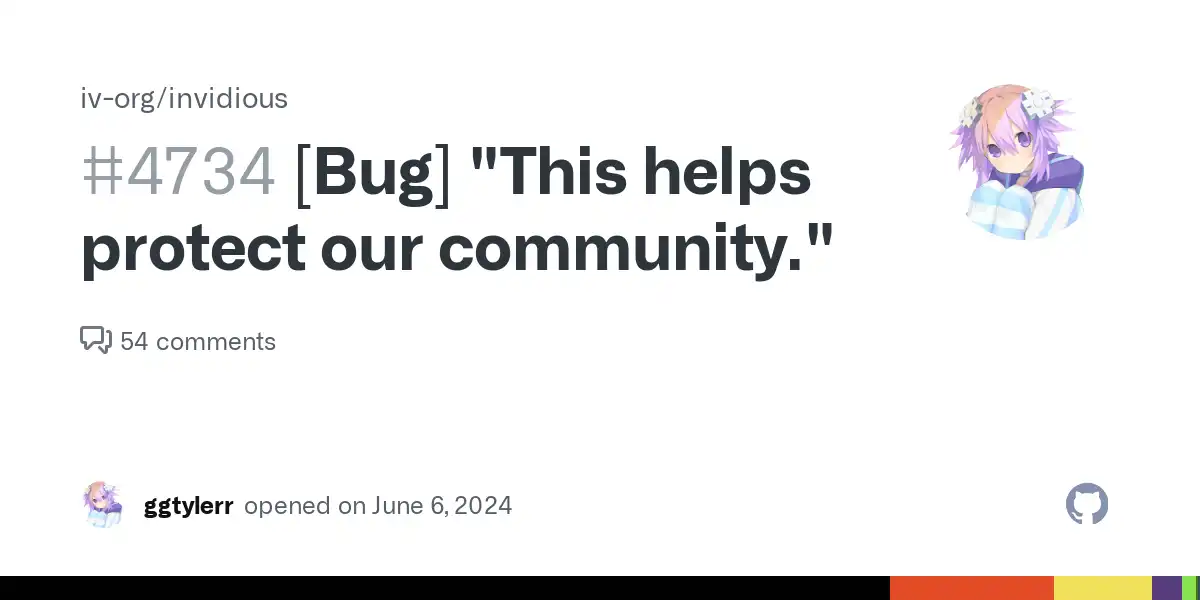- cross-posted to:
- degoogle@lemmy.ml
- technology@lemmy.zip
- cross-posted to:
- degoogle@lemmy.ml
- technology@lemmy.zip
cross-posted from: https://discuss.tchncs.de/post/22423685
EDIT: For those who are too lazy to click the link, this is what it says
Hello,
Sad news for everyone. YouTube/Google has patched the latest workaround that we had in order to restore the video playback functionality.
Right now we have no other solutions/fixes. You may be able to get Invidious working on residential IP addresses (like at home) but on datacenter IP addresses Invidious won’t work anymore.
If you are interested to install Invidious at home, we remind you that we have a guide for that here: https://docs.invidious.io/installation/..
This is not the death of this project. We will still try to find new solutions, but this might take time, months probably.
I have updated the public instance list in order to reflect on the working public instances: https://instances.invidious.io. Please don’t abuse them since the number is really low.



While I agree, I have a hard time seeing how people will stop using it until the field changes. Maybe in 10 years it will the the MySpace of the sitcom era, but right now it’s still growing. That growth is giving it carte blanche to manipulate the users as it sees fit. Regulation might impact it, but it’s still a bit of a Goliath.
Also the active user base is 2.7 billion people in 2024 from the same source above.
The alternatives are out there, but just not in the same league.
deleted by creator
regulations for ad quality, and privacy, are almost certainly what they mean by that.
I don’t think this requires an act of congress. I think you might see more consumer advocation on the part of FTC (although it doesn’t currently regulate online broadcast), or potentially the CFPB.
Admittedly it’s more likely to see the EU do some regulations, but it all depends on the election.
I think it needs regulation, the whole streaming industry needs to be regulated! It can’t be that the competition is made using exclusive content and you have to live with privacy infringement tech to consume cultural art legally.
In my opinion, in a capitalist system, the market competition should be about delivering the content the best way, not about what content they deliver.
Right now, they can made the delivery as shitty as they want, because what takes them apart from competition is the exclusive content, not the tech.
Agreed, now the fun part of coming up with a legal basis to do so and convincing regulators.
I think in the EU one could achieve something like this a la appstore opening rule, where streaming services are demanded to give other streaming services access to the library, lime some sort of roaming 🤔
Or you split the distribution from the company producing stuff
So many possibilities 😂
Luckily I am in a pirate friendly country 🏴☠️
We should reach a compromise of having skippable ads in the beginning only, for example. In other pages it could be that ads cannot be bigger than 10% of the content being delivered on the page.
It’s not always all or nothing, good regulation listens to both sides and reaches a compromise in the middle, but good regulation is getting harder and harder to come by.